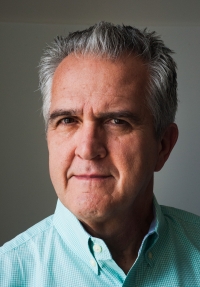The only thing I regret is that I didn’t leave earlier.

Download image
Andres Reynaldo was born on April 8, 1953, in a small village in the province of Las Villas. His family felt the effects of the victory of the Cuban Revolution from the very beginning. The revolutionary authorities persecuted several members of his family, and one of his uncles was even executed. He was a soldier in the Cuban army. Following a happy childhood in the countryside, the family moved to Havana, where Andres Reynaldo spent his youth. As a fan of literature and music, he tried to obtain Western recordings and books, often through a shop with sailors who sailed to the port of Havana. He studied literature at the University of Havana and worked in the field of art. In 1980, he took the opportunity to leave Cuba on a ship that sailed from the port of Mariel. He first lived in the United States, then moved to Puerto Rico, where he began working as a journalist. After returning to the United States, he worked in major newspapers and magazines, such as the El Miami Herald or the People magazine in New York. Today he lives in Miami and works for television.
